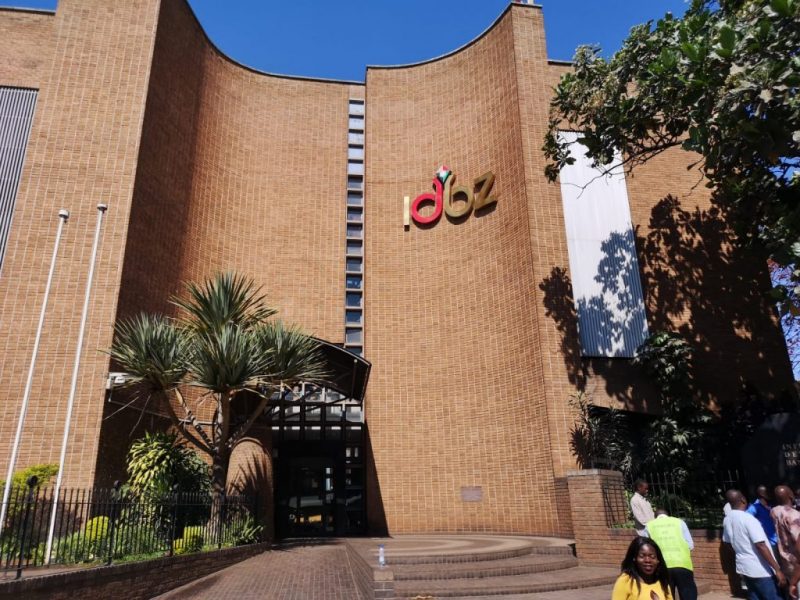Rebranded IDBZ outlines broader mandate
GROWING a robust pipeline of bankable and shovel-ready projects geared at accelerating infrastructure investments, deepening partnerships and scaling up funding support to the private sector are part of key focus areas for the renamed
Infrastructure and Development Bank of Zimbabwe (I&DBZ).
Formerly known as the Infrastructure Development Bank of Zimbabwe, the re-branded I&DBZ seeks to reflect the bank’s broader mandate which incorporates infrastructure and, at the same time, promote developmental financing across all sectors of the economy.
“Our stakeholders are hereby notified that in terms of the Finance Act, 2023 (No. 13 of 2023), the Bank has been renamed from Infrastructure Development Bank of Zimbabwe to Infrastructure and Development Bank of Zimbabwe with effect from 1 January 2024.
“The change of name was necessitated by the need to have a name that reflects the Bank’s broader mandate which incorporates infrastructure and, at the same time, promote developmental financing across all sectors of the economy,” it said in a statement.
The objective of establishing the IDBZ as a successor to ZDB was to focus the Bank’s mandate on infrastructure development as an anchor for stimulating and supporting the economic and social development of Zimbabwe.
The absence of a development finance institution (DFI) that focused on infrastructure development prompted the Government to transition the ZDB to the IDBZ.
As an Infrastructure and Development Bank, the Bank will broaden and deepen private sector support in pursuit of strengthening the execution of its mandate, it noted.
The bank’s broad mandate is to improve the standard of living of Zimbabweans through sustainable economic growth and investment in infrastructure as well as addressing funding shortfalls across all the sectors of the economy.
According to the bank, the transition to I&DBZ is to enhance the execution of its mandate which seeks to promote economic development and growth, and to improve the living standards of Zimbabweans through the development of infrastructure, but not limited to, roads, dams, water reticulation, housing, sewerage, technology, amenities and utilities.
Added to that, it further endeavours to develop institutional capacity in undertakings and enterprises of all kinds in Zimbabwe and support development projects and programmes in all sectors of the Zimbabwean economy.
I&DBZ added that it will prioritise growing a robust pipeline of bankable and shovel-ready projects in order to accelerate infrastructure investments in primary focus sectors such as water and sanitation; housing, irrigation development, transport, and energy as well as the secondary focus sectors which include health, education, Tourism, and Information Communication Technology (ICT).
There is also an element of scaling up funding support to the private sector by funding agri-businesses, mining and metals production, and various manufacturing businesses in automotive and transport equipment chemicals, medical and industrial mineral products.
The bank says that scaling up funding support to the private sector, it will strengthen financial sustainability.
“A stronger private sector performance will ensure diversified short-term income to augment the Bank’s long-term infrastructure income,” it said.
The bank is also responding to the national call for sustainable energy generation guided by the Nationally Determined Contributions through development of renewable energy projects.
The I&DBZ as a development finance institution says it will play a key role in the shift to low-emission, and climate resilient infrastructure.
“As such, the transition will also allow the Bank to take part in the financing of development programmes with the support of bilateral and multilateral institutions. With the world moving from global warming to global boiling, there is more urgency than ever to unlock the capital needed for the transition to a net-zero global economy.
“This will result in increased funding commitments, and deployment of finance for climate and sustainable development in the most efficient and effective way possible. The transition will therefore see increased activities in climate change mitigation and adaptation, as well as in other environmental objectives such as biodiversity.”
The bank has been visible in implementing various projects in the region.
For instance, last year, the Bank reached practical completion of the Bulawayo Student Accommodation Complex (BSAC) which will houses more than 1 000 tertiary institution students in Bulawayo.
The multi-purpose three-block flats complex dubbed “Bulawayo Students City” has 516 rooms, 264 for males and 252 for females with a capacity to accommodate 1 032 students.
The project is expected to alleviate the accommodation shortage for students in Bulawayo and students are expected to move in before the end of the year.
The facility is self-contained and has fast food outlets, shops, salons and sporting facilities.
It is also working on a similar project, the Lupane Students Accommodation Complex (LUSAC) which has a funding requirement estimated at US$19,8 million.
Added to that, it is heavily involved in the development of Willsgrove Park Phase 2 housing project through a Joint Venture with Whitepear Farming Company (Private) Limited.
Whitepear farming company are the owners of the land. The project is located 11km south of Bulawayo Central Business District along Old Gwanda Road (12th Avenue Extension).
A few years ago, I&DBZ handed over a solar-powered borehole water system to Shashane Adventist Primary School in Matobo District in Matabeleland South province.
The project was part of the bank’s corporate social responsibility (CSR) initiative.
The bank drilled a 120-metre-deep solar powered borehole and installed a 5 000 litre water tank.
The project was funded to the tune of US$17 000.-chronicl










